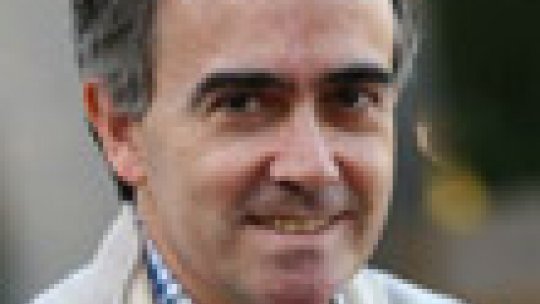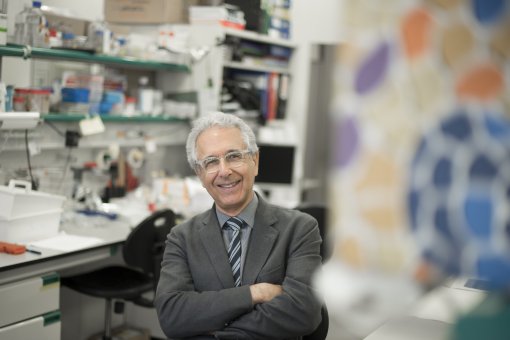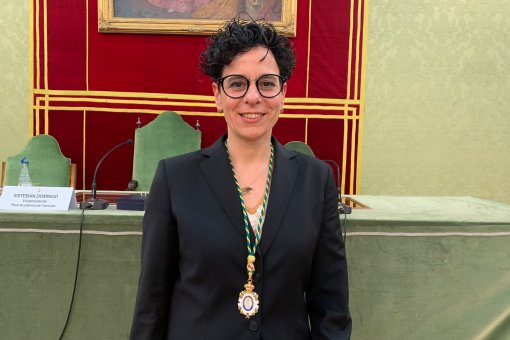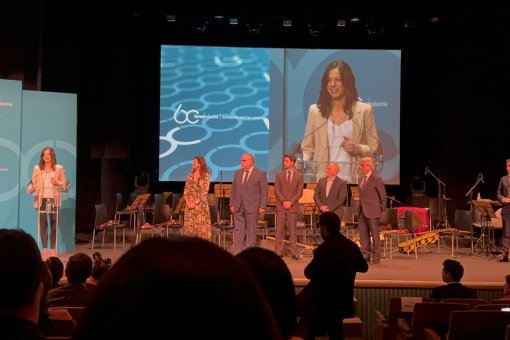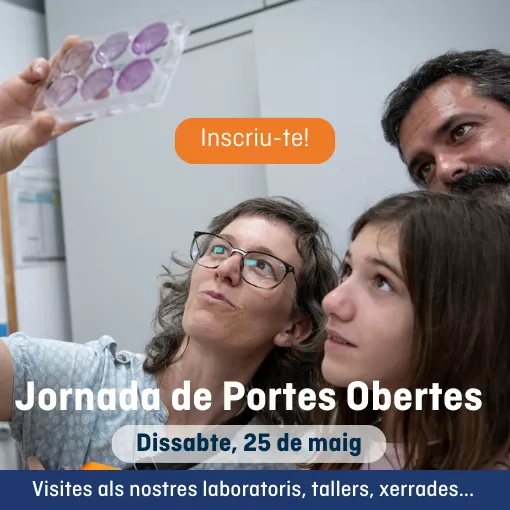Images
Contact

During July, Angel R. Nebreda (Benavente, 1961) will be preparing his 166 m2- cancer lab at the Institute for Research in Biomedicine (IRB Barcelona). After six years at the Centro Nacional de Investigaciones Oncológicas (CNIO) (Spanish National Cancer Research Centre) in Madrid, Nebreda and his team have moved to the capital of Catalonia to join the Oncology programme, in which they will set up the “Signalling and Cell Cycle” lab, the fourth at IRB Barcelona devoted exclusively to cancer.
“We are very interested in colon and breast cancer and studies on metastasis, a field of investigation that is linked to the interests of the centre and of its group of experts, who include Eduard Batlle, Roger Gomis, Travis Stracker and Joan Massagué”, explains Nebreda, who, from September, will hold an ICREA Research Professor position (awarded by the Generalitat de Catalunya).
Most of the studies performed by Nebreda centre on the protein p38 MAPK and its implications in cancer. p38 is present in all cells of an organism where it participates in multiple processes, including blocking the development of cancer and controlling the proliferation and differentiation of stem cells in lung tissue. In 2007 Nebreda’s group discovered that lung tumours develop more quickly in mice when p38 was inactivated . The results from several studies were published in Nature Genetics and Cancer Cell, two of the biomedical journals with the highest impact factors. Nebreda will now extend his research to the implication of p38 in high incidence tumours, including the breast and colon. He will also examine how cancer cells misuse p38 to their own benefit to enhance their survival, proliferation and migration.
Angel Nebreda will also investigate the relation between inflammation and cancer. His group forms part of the European consortium INFLA-CARE, which involves 19 research centres and four biotech companies. Nebreda’s lab contributes to this consortium through studies on the role of p38 in colon cancer processes associated with inflammation.
Another focal point of Nebreda’s research is RINGO proteins, molecules involved in cell cycle regulation that were discovered by his group in 1998. He will use the Xenopus frog, an animal model highly suited to study the control of cell division. The Barcelona Science Park, which hosts IRB Barcelona, is preparing a Xenopus frog service in its animal facility. Apart from this service, Nebreda will also use several high performance IRB Barcelona Core Facilities to carry out his research lines including those devoted to Mouse Mutant, Functional Genomics and Biostatistics/Bioinformatics.
Brief biography.
Angel Rodríguez Nebreda was born in Benavente (Zamora) in 1961. He studied Biology at the University of Salamanca and earned his PhD in 1986 from the same university. In 1987, he moved to the USA, where he did a 4-year post-doctoral stage at the National Institutes of Health. In 1992 he returned to Europe to join the group headed by Tim Hunt, 2001 Nobel Laureate in Medicine, at the Cancer Research UK Clare Hall Laboratories, in the UK. He set up his own group at the European Molecular Biology Laboratory (EMBL) in Heidelberg (Germany) in 1995. Nine years later, in 2004, Nebreda joined CNIO, and as of this July he forms part of the critical mass of researchers at IRB Barcelona. He is the author of more than 120 publications in leading scientific journals and 2 patents. Furthermore, he has directed 12 doctoral theses. He co-founded the biotech company Cellzome, which now has 90 employees between Heidelberg and Cambridge. He was elected an EMBO member in 2003 and has been the editor of the FEBS Letters journal since 2004. He has served on the scientific advisory committees of several organisations, including the Association for International Cancer Research (AICR) since 2008.
About IRB Barcelona
The Institute for Research in Biomedicine (IRB Barcelona) pursues a society free of disease. To this end, it conducts multidisciplinary research of excellence to cure cancer and other diseases linked to ageing. It establishes technology transfer agreements with the pharmaceutical industry and major hospitals to bring research results closer to society, and organises a range of science outreach activities to engage the public in an open dialogue. IRB Barcelona is an international centre that hosts 400 researchers and more than 30 nationalities. Recognised as a Severo Ochoa Centre of Excellence since 2011, IRB Barcelona is a CERCA centre and member of the Barcelona Institute of Science and Technology (BIST).

